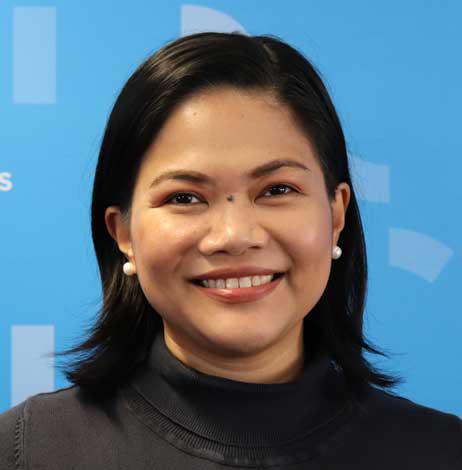Transforming Learning: Leveraging Artificial Intelligence in the United Nations
As we turn the lens of inquiry to the 1994 episode of "Today” show, we are immediately transported to a time of curiosity, confusion, and enchantment as the hosts decipher what an email address means. The unfamiliar '@' symbol provokes a lively discussion and symbolizes a pivotal moment in technology's narrative - the birth of the Internet Age.
Watch a flashback to the Internet in 1995
Today, we are standing on a similar juncture with generative AI, specifically the introduction of chatbots like ChatGPT. As Learning Professionals, it is vital not to be simply enamored by the shimmer of new technology. Instead, we must adopt a critical stance, seeking answers to the question of not merely what the technology can do, but how it can help address the challenges that persist in our field.
Historically, we have seen a parade of technologies promise to revolutionize the learning and development sphere. We have transitioned from the era of floppy disks to CDs, saw the boom of the internet, the advent of Google, and witnessed the transformative power of learning management systems, YouTube, and social media. AI and chatbots are merely the latest entrants in this technological procession but their impact, like their predecessors, hinges on how well they are integrated and utilized.
When a new technology emerges, the question should be how it helps address the existing pain points within the learning and development space. It is not about a blind adoption of technology or replacing human capabilities with AI, but how these new tools can augment current resources, improve workflows, and add value to the learners and the organization.
Our ongoing challenges range from the assessment of learning needs, the design and delivery of learning content, knowledge retention, to stakeholder management and impact evaluation, among many other things. These challenges are our opportunities. They provide the canvas upon which AI can paint its solutions.
Within the United Nations, there is a tremendous opportunity to leverage AI in novel and impactful ways. Not only can we harness the power of existing generative AI technologies, but we can also use these tools to facilitate content creation, clarify complex texts, and automate repetitive tasks. This focus on automating drudgery has the potential to improve efficiencies and free up time for professionals to focus on tasks requiring human intuition and emotional intelligence.
More ambitiously, organizations within the United Nations have the unique potential to create specialized AI tools by leveraging the vast data and knowledge repositories at their disposal. The concept of creating a 'UN-GPT,' for instance, could serve as a powerful tool for learning and capacity building within the UN and for its partners through enhancing information retrieval, summarizing extensive documents, and serving as an interactive training tool to educate the public about international affairs or identify trends, themes, and shifts in discourse over time. This could be useful for research, policy-making, and strategic planning.
Finally, the United Nations, with its access to an enormous reservoir of data, can collaborate with data scientists to devise solutions for global challenges. Concepts like 'digital twins,' or virtual replicas of physical systems, have the potential to predict real-world impacts of policy interventions. These virtual models could be game-changers for decision-makers, providing them with valuable insights and the ability to run simulations before implementing policies in the real world. Wouldn’t this be a good opportunity to learn in the future?
As we turn a page in the AI era, it is crucial to remember the lessons from the past. Like the hosts of the “Today" show puzzled by an email address in 1994, we need to approach AI with curiosity, criticality, and a focus on problem-solving. As Learning Professionals, our aim is to not just be spectators in this AI narrative but to be proactive storytellers, crafting the future of our field through the strategic use of AI tools and solutions. As learning advocates within the United Nations, learning professionals can help shape the responsible and effective use of AI in the United Nations.
This blog is based on the author’s presentation at the Geneva Learning Network (webinar) titled ‘The Learning Revolution: Empowering Minds with Artificial Intelligence’ on 30 May 2023. You may reach out to Paulyn Duman at p.duman@unssc.org if you have any comments or questions.
